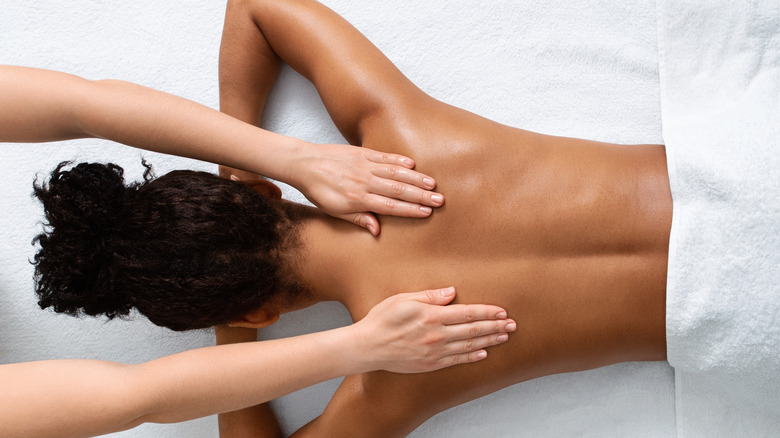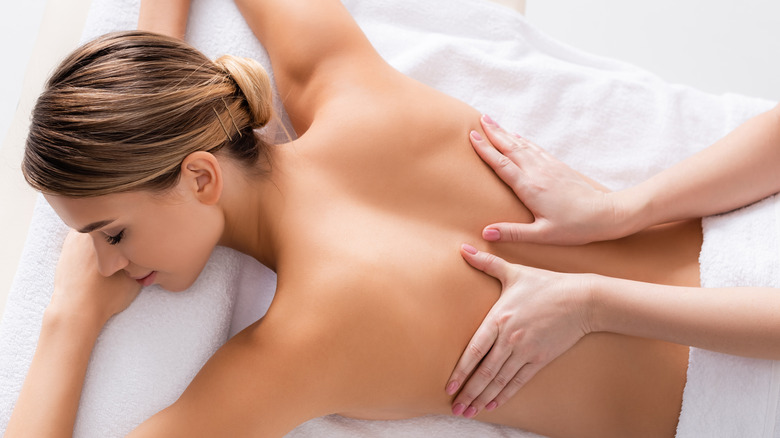Are Back Massages Actually Good For You?
Many people find back massages to be a pleasurable experience, but we all know that just because something is pleasurable does not necessarily mean it is good for you. Ice cream, anyone? Fortunately, back massages are not like ice cream; not only are they enjoyable, but they are generally good for you, as well.
Back massage is a safe and effective treatment for acute back pain, according to The American College of Physicians. This is even true if you're suffering back pain due to pregnancy, and are receiving regular, light massages from a loved one at home (per Expert Review of Obstetrics & Gynecology). In fact, 15-minute massages every hour during labor may hasten the delivery process and reduce the need for pain medication.
Massages may also help to reduce blood pressure, says Healthline. Tiffany Field, director of the Touch Research Institute at the University of Miami, told Time that massages reduce both physical and emotional pain, and may even boost the immune systems of people with conditions such as breast cancer. In addition, a small 2016 study published in the Clinical Journal of Oncology Nursing found that therapeutic massage may help to relieve side effects of chemotherapy. And massage therapy may improve quality of life in patients with fibromyalgia, according to the National Institutes of Health (NIH).
On the other hand, the NIH notes that many of the studies purporting health benefits from massage are small, and some may be biased — though that said, they also state that risk of harm from a massage seems to be low.
This is what to keep in mind if you choose to get a massage
While side effects are rare, they do happen. A 2007 study published in the Journal of Alternative and Complementary Medicine found that some patients feel sore for a day or two after receiving a massage. If you experience pain during your massage, Healthline advises to stop the massage immediately. Healthline also suggests exercising caution if you have cancer, osteoporosis, a bleeding disorder, fractured or broken bones, burns or open wounds, or other serious medical conditions. If in doubt, it would be a good idea to consult your doctor. This is especially true if you have a history of blood clots, because massages can cause blood clots to break loose and travel to the lungs or heart, potentially causing a blocked artery or heart attack.
Pregnant women may be discouraged from receiving massages during their first trimester, particularly if they have health problems such as hypertension. To make sure your massages are pregnancy-safe, Healthline recommends finding a massage therapist who specializes in prenatal massage. And of course, the NIH stresses that massages should never be used as a replacement for medical care.

